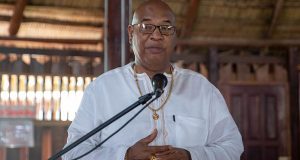By Carla Hindman
Director Financial Education, Visa Canada
T’is the season for tax refunds! Tax refunds are issued when more tax has been withheld from your paycheque than needed. According to a recent TD Canada Trust survey, six in 10 (57 per cent) of people said they expect a tax refund this year. If you’re among them and you filed online (like the 82 per cent of individuals last year), then be on the lookout for your refund in as little as eight business days. If you filed on paper, it may take four to six weeks to receive your refund.
If you’re one of the lucky ones that receive a tax refund, there’s a strong temptation to go window shopping for the latest gadget or that special purchase you’ve been putting off. However, there are some real advantages to using your refund money wisely, and you may find that temptation pales in comparison to the peace of mind smart planning provides.
Here are some tips to help you do the fiscally responsible thing, and make those tax refund dollars go a little further this year.
Reduce or Eliminate Debt. Reducing debt is like losing weight. You’re not going to lose 50 pounds in a month, but using your tax refund to pay off debt can help you shed a few “pounds” quickly. You need realistic goals in reasonable timeframes. Start by making a list of everything you owe and make payments against the items with the highest interest first.
Start or increase your emergency fund. There’s nothing harder than to plan for than the unexpected. The key to successfully surviving these life changing events, financially at least, is to anticipate hard times. An emergency fund should be easy to access in the event of unemployment, illness or a major unplanned expense. Experts recommend saving three to six months of living expenses. Need help figuring out how much to put aside for your emergency fund? Check out this calculator from Visa’s Practical Money Skills.
Save for the future – for you and your loved ones. With so many pressing needs today, it’s easy to overlook the importance of saving for tomorrow. If your debt and emergency savings are under control, investigate savings tools such as a Tax Free Savings Account (TFSA) or a Registered Retirement Savings Plan (RRSP) to see if they fit your savings goals. Saving for postsecondary education for your child? Consider opening a Registered Education Savings Plan (RESP) and watch your money grow tax free until it’s withdrawn for qualified educational expenses. As a bonus, the federal government will provide a grant of 20 per cent of the first $2500 in annual contributions made to an RESP – up to $500 per year. The lifetime Canada Educations Savings Grant limit for an RESP is $7200.
Life insurance. Life insurance can be difficult to think about. It forces us to contemplate our own death, an eventuality many of us would rather not face. Putting your tax refund toward a life insurance policy can give you – and your family – peace of mind, so that if the unthinkable happens they will be better able to make ends meet.
Upgrading your home. A little TLC can go a long way towards saving on utility bills. Projects can include upgrading to energy efficient appliances and improving insulation on windows and doors. Looking for other cost-effective alternatives? Switch to energy efficient lightbulbs. They may cost more initially, but will save you money in the long run.
Invest your refund. There are different ways you can invest your tax refund, such as in stocks, home ownership and businesses. If you don’t know where to start, consider meeting with a financial advisor to help determine your financial goals.
Bottom line: Before you splurge on something you don’t really need, consider investing at least part of your tax refund on something that will boost your future financial security.
Carla Hindman directs the Practical Money Skills program for Visa Canada. More budgeting and personal finance tips can be found at www.practicalmoneyskills.ca. As always, consult a financial professional regarding your particular situation.
 Pride News Canada's Leader In African Canadian & Caribbean News, Views & Lifestyle
Pride News Canada's Leader In African Canadian & Caribbean News, Views & Lifestyle





